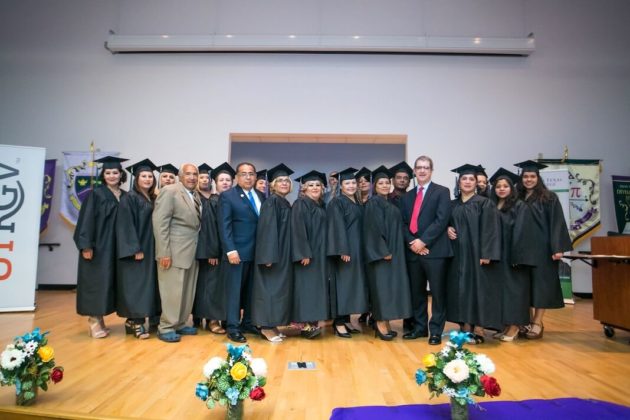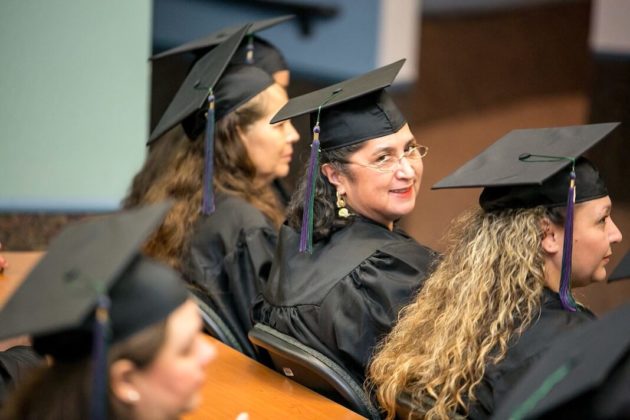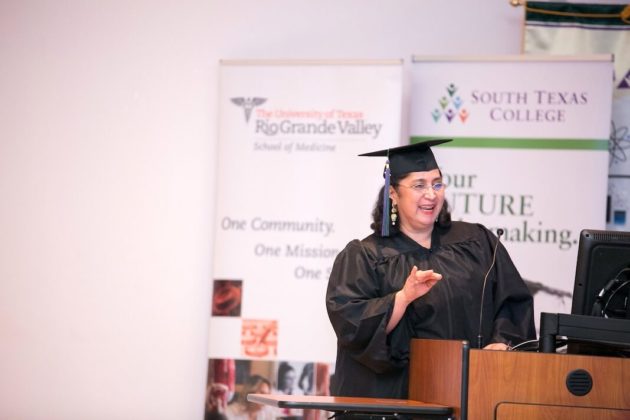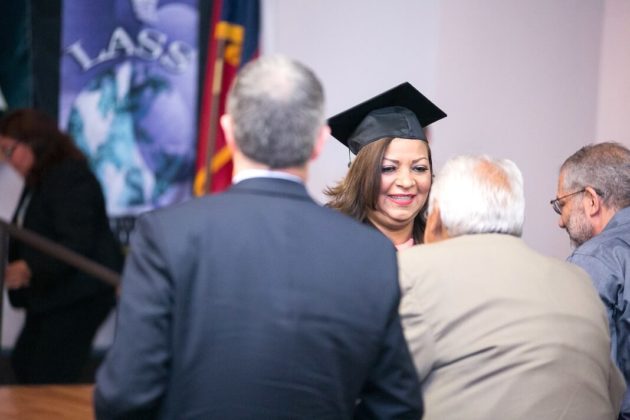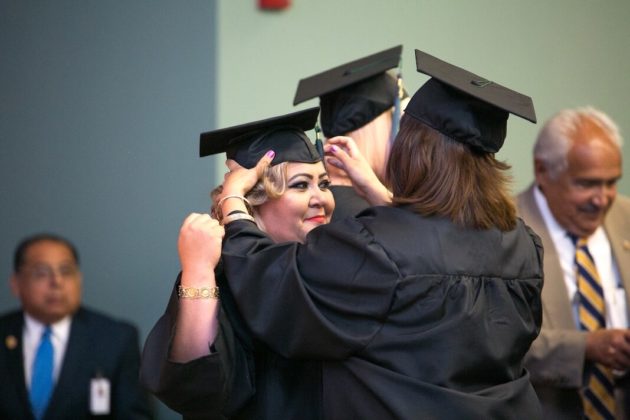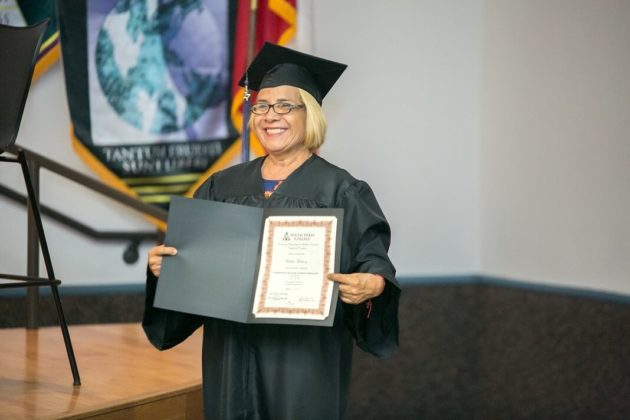Mega Doctor News
McAllen, TX (August 24, 2017) – South Texas College joined the University of Texas Rio Grande Valley, Texas A&M University and United Healthcare to celebrate the first cohort of community healthcare workers who will be on the frontlines in some of the hardest hit areas of the Rio Grande Valley.
The students are recent graduates from the South Texas Community Health Worker Training Network, a collaboration between the institutions and the National Rural Health Association to offer training to people who want to serve their neighborhoods as promotores, individuals who serve as liaisons between their communities and healthcare providers.
Speakers at the graduation included Dr. Eron G. Manusov, Assistant Dean of Medical Education at the University of Texas-Rio Grande Valley School of Medicine; Dr. Francisco Fernandez, Professor in the Department of Psychiatry, Neurology and Nuerosciences-UTRGV School of Medicine; Darryl Chapman, Vice President of United Healthcare; Tina Guel, Community Healthcare Worker for Texas A&M Training Center; and Daniel Montez, Administrator at STC’s Mid-Valley Campus.
“We started this three years ago, Dr. Fernandez and I, and we wanted to develop a sustainable model of care in the colonias,” said Dr. Manusov. “We wanted to provide medical care and all the things that contribute to health including education, clean water, and jobs. The idea was to develop a program that we spread across the entire Valley.”
The training program is part of the UTRGV School of Medicine’s South Texas Interprofessional Team Collaborative for Health (STITCH). STITCH is a collaboration between county health departments, hospitals, nonprofit groups, promotores and educational institutions to provide care to communities.
It was made possible by a three-year, $2.8 million grant awarded to the UTRGV School of Medicine by United Health Foundation to help support the Colonia Integrated Care Program: VIDAS (Valley Interprofessional Development and Services). The initiative aims to unite the region by building an integrated, interprofessional collaborative that will create a sustainable model for health care delivery to the most vulnerable members of the community.
“You have heard the term ‘helping people lead healthier lives’, well that is the core of what we stand for,” said United Health VP Chapman. “This is what we live for every day, and there are many ways we do that; through work like this through the Foundation, and the work that everyone is doing here. I admire all of your work.”
Community Health Workers (promotoras) are regarded as trusted and knowledgeable frontline personnel who typically come from the communities they serve. They serve to bridge cultural and linguistic barriers, and expand access to care in some of the hardest hit areas of the Rio Grande Valley.
These workers are often hired by healthcare agencies with a population-based focus including promoting the health of pregnant women, improving nutrition, immunizations and education of various health issues including AIDS and diabetes.
“This comes from a collaborative healthcare initiative in South Texas, which invited STC to be part of a network to provide educational services and outreach opportunities to our communities,” said Lori Trevino, Operations Officer with CPWE at South Texas College. “The South Texas Community Training Health Worker Network. “These graduates are the ones who reach to people in the colonias, and inform them of different avenues or alternatives for everything from diabetes awareness to nutrition and everything in between.”






